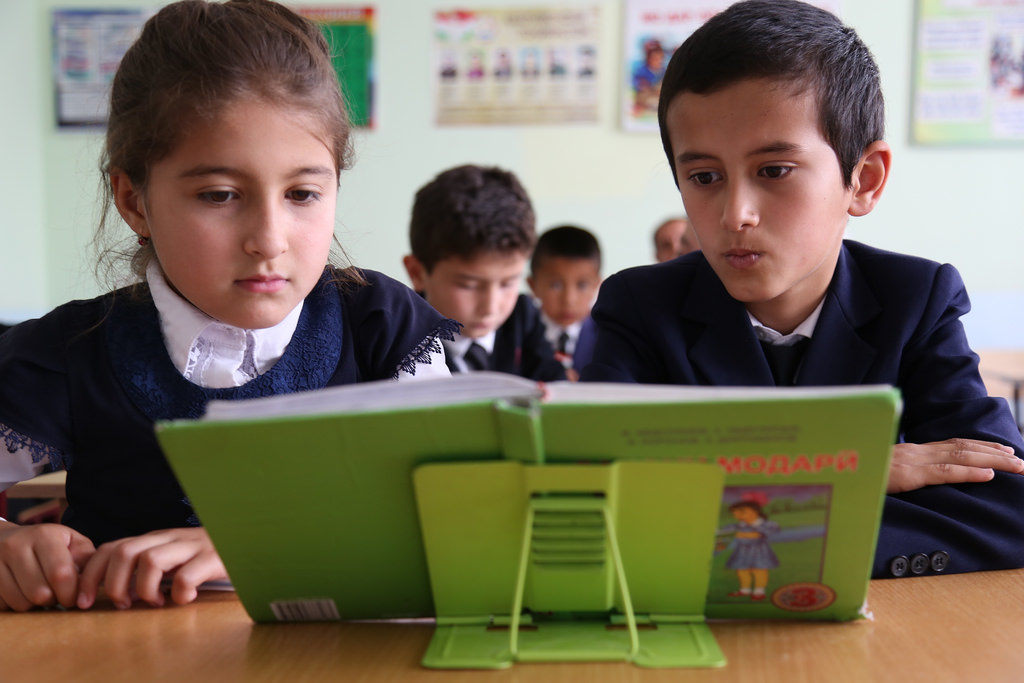“Unearthing new ways to combat religious extremism”
October 30 Swapnil Mishra, 21, a Commonwealth Correspondent from India, currently studying in the United States, writes that governments should consider investments in social and economic infrastructure as key ways to combat religious extremism.
Swapnil Mishra, 21, a Commonwealth Correspondent from India, currently studying in the United States, writes that governments should consider investments in social and economic infrastructure as key ways to combat religious extremism.
The government of Tajikistan is going all out to curb religious extremism. Last year, the government outlawed Arabic-sounding names. It has also shut down a great number of headscarf shops. Unofficial religious teaching, and even studying in religious schools outside the country, is now prohibited. The government has also banned the production, import or export of religious books without permission.
Has this religious repression has contributed to radicalizing devout Muslims? Probably. In fact, more than 2,000 Tajiks are reported to have joined the Islamic State so far.
Unofficial estimates suggest that unemployment in Tajikistan is as high as 15 per cent. In search of work, one could argue, many young men travel abroad and end up becoming radicalised.
Regrettably, the current leader of the country seems to be more concerned about beards than jobs.
It’s not a leap in logic to posit that young people with no job prospects may easily be lured by promises of work and status made by religious extremists. Often, unemployed youth are offered houses and wives in exchange for their support to the extremist movement. Moreover, some youth could be driven by an agenda of revenge against the state. Hence, the absence of adequate employment opportunities for young, educated individuals might be fueling support for violent extremism among the general population.
Therefore, it can be made out that the rise of extremism in Tajikistan has a lot to do with the way the government is trying to deal with curbing the people from following their religion the way they want to. Instead of banning the right to practice religion, the government should address violent extremism by investing in social infrastructure. This means empowering civil society to change discourse within communities where extremism germinates. Civil society officials should develop institutions to engage and educate the youth against aligning with religious extremism.
The bigger responsibility the government has on its shoulders, however, is to improve the economic infrastructure of the country by engaging in human capital and job creation. Creating incentives for greater entrepreneurship and establishing a framework for training will bolster public-sector efforts. Instead of shutting down headscarf shops, the government should set up an apprenticeship to encourage people in joining small-scale businesses to improve their socio-economic mobility. Moreover, the private sector also has a role in supplementing insufficient public-sector efforts.
photo credit: Global Partnership for Education photopin (license)
…………………………………………………………………………………………………………………
About me: My name is Swapnil Mishra and I am an undergraduate student pursuing a major in Economics with minors in Business (Environmental Management) & International Relations at Knox College, Illinois, U.S.
My ambition is to work in the field of International Development and my interests are cricket and travelling.
…………………………………………………………………………………………………………………
Opinions expressed in this article are those of the author and do not necessarily represent the views of the Commonwealth Youth Programme. Articles are published in a spirit of dialogue, respect and understanding. If you disagree, why not submit a response?
To learn more about becoming a Commonwealth Correspondent please visit: http://www.yourcommonwealth.org/submit-articles/
…………………………………………………………………………………………………………………




